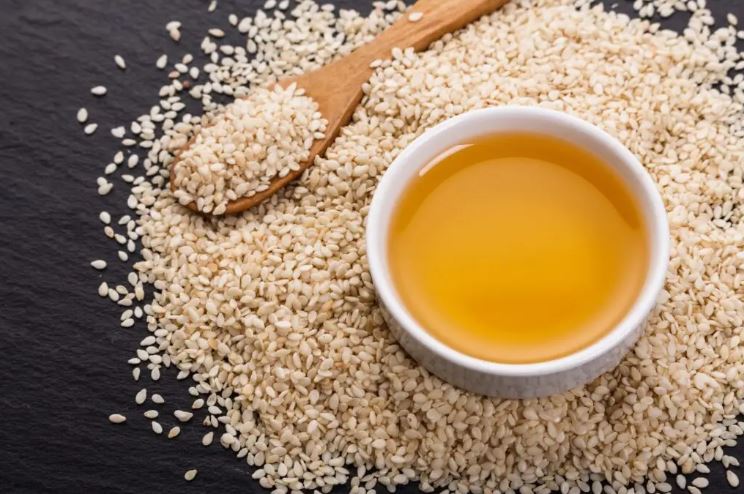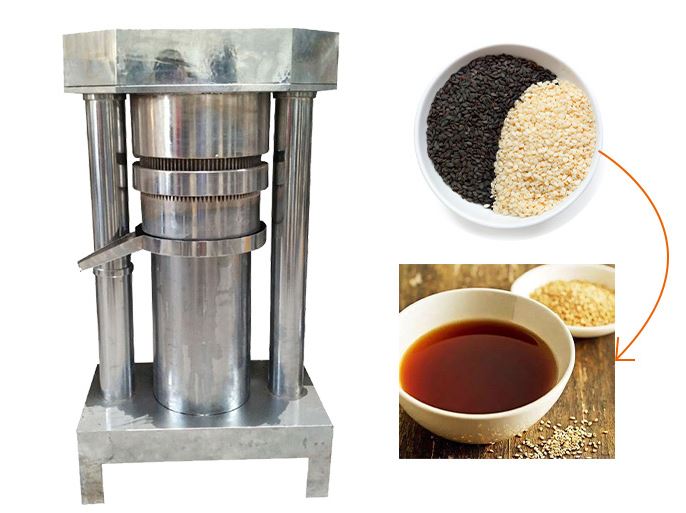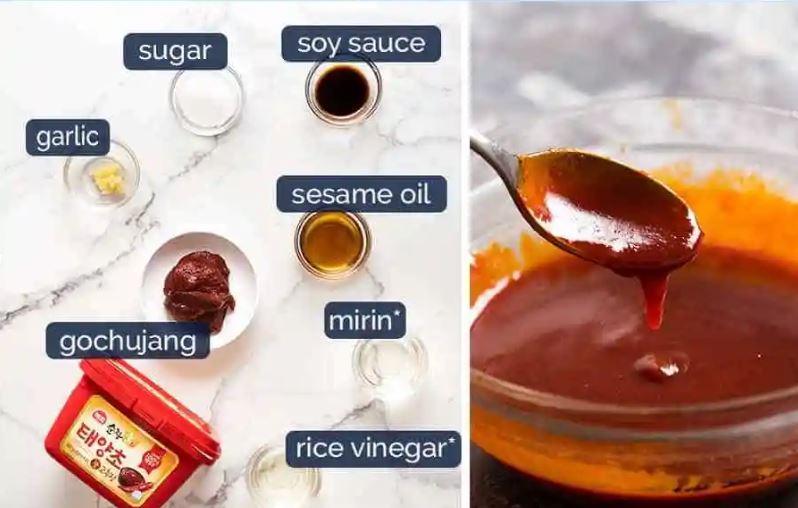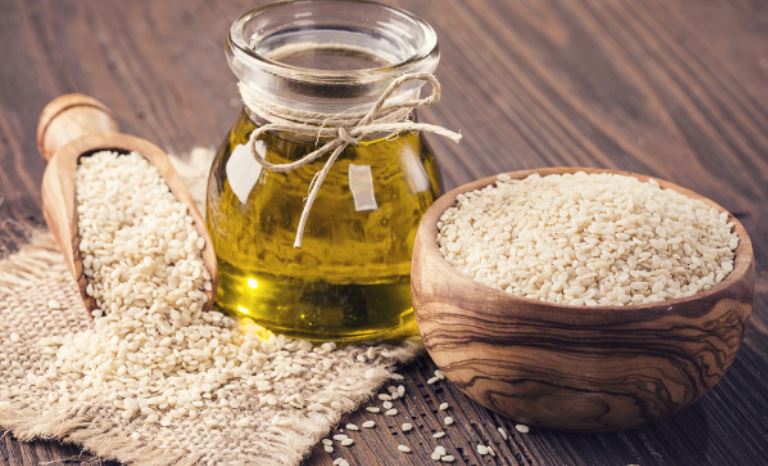
Image source: collected
Sesame oil, also known as til oil, is derived from sesame seeds. Cold-pressed sesame oil usually has a light yellow color, while Indian sesame oil is darker yellow, and roasted sesame oil typically has a darker hue with a distinct aroma.
2. What is Sesame Oil made from?
Despite their small size, sesame seeds are rich in oil. The process involves harvesting mature sesame seeds, separating them, and then air-drying. The seeds can be used as they are or lightly roasted before oil extraction.
Thanks to methods like cold pressing, this oil retains a significant amount of nutrients. As a result, sesame oil is commonly used in cooking and various other areas such as beauty treatments and hair care. Sesame seed husks (seed shells) are dried and ground to produce raw materials for animal feed or fertilizer production.

Image source: collected
3. Is consuming sesame oil beneficial?
According to studies, sesame oil contains numerous compounds that are highly beneficial for health, particularly antioxidant properties.
In 100g of sesame oil:
- Calories: 884 kcal
- Vitamin E: 1.4mg
- Vitamin K: 13.6μg
- Saturated Fat: 14.2g
- Monounsaturated Fat: 39.7g
- Polyunsaturated Fat: 41.7g
- Cholesterol: 0mg
- Protein: 0g
- and various other nutrients
The anti-inflammatory properties of sesame oil help reduce pain associated with muscles and joints. Additionally, sesame oil aids in lowering cholesterol, improving circulation and digestive issues, promoting heart health, and enhancing skin beauty.

Image source: collected
4. What is Sesame Oil? How is it used?
Sesame oil can be used as a substitute for lard and cooking oil in many recipes and baking. Unlike olive oil and coconut oil, which are prone to burning at high temperatures, sesame oil has a smoke point of 400°F (about 205°C). This prevents the fats in sesame oil from being destroyed, avoiding the generation of harmful free radicals. Therefore, sesame oil can be used for various cooking methods (frying, baking, etc.) without releasing harmful substances.
- Fried dishes: Adding a few drops of sesame oil while frying enhances the aroma and keeps the dish crispy for longer. For fried eggs, adding 1-2 drops of sesame oil while beating the eggs makes the dish softer and fluffier.
- Baking: A trick commonly used by chefs is to add a few drops of sesame oil while kneading the dough for a more fragrant aroma.
- Grilled dishes: Sesame oil is added to the coating mix for grilled items.
- Salads, mixed dishes: If you appreciate Korean cuisine, you'll notice that many dishes like mixed rice, kimbap, mixed noodles, etc., use sesame oil to enhance their appeal.
- ...

Image source: collected – sesame oil as an ingredient in bibimbap sauce
5. Some Questions and Answers about Sesame Oil
Is sesame oil the same as oyster sauce?
Oyster sauce is a condiment made from oysters. It typically has a dark brown color, a thick consistency, and a sweet-salty flavor profile. Oyster sauce is used as a seasoning to marinate dishes, added during stir-frying, or transformed into a dipping sauce for certain special dishes.
Therefore, sesame oil and oyster sauce are two distinct products with different uses and applications in cooking.

Image source: collected
What is Sesame Oil? Is Sesame Oil the same as Olive Oil?
Olive oil is a type of vegetable oil extracted from fresh olives originating from the Mediterranean region. Olive oil also has various health benefits and is used in cooking, cosmetics, and many other fields. Therefore, sesame oil and olive oil are distinct. When making a choice, it's important to differentiate sesame oil from other oils, including olive oil, and various cooking oils to select the right product.
Identifying and Buying Sesame Oil
In terms of color, sesame oil typically has a deeper yellow hue compared to peanut oil. Some types of sesame oil (roasted or toasted sesame seeds) may have a darker yellow color.
Regarding product packaging, the label on the outside of the bottle often reads “sesame oil” or “sesame oil.”
Sesame oil, like some other cooking oils, may be counterfeited or adulterated. Therefore, it's advisable to purchase from reputable sources such as supermarkets, grocery stores, or extract sesame oil yourself. Additionally, pay attention to the expiration date printed on the product packaging for optimal health benefits.

These are answers to the question what is sesame oil and its applications in daily life. Add these tips to your cooking notebook for delicious meals.
Explore more:
- What is Oyster Sauce?
- What is Grape Sugar?